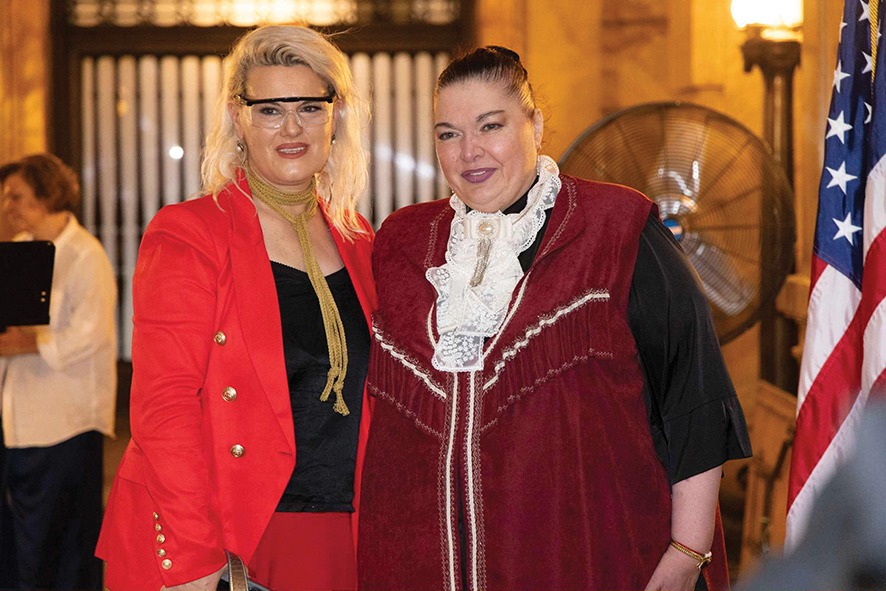In today’s interconnected world, the lives of professionals who transcend national boundaries and merge diverse disciplines carry a resonance that extends far beyond individual success stories. Among such figures stands Natalia Vashakidze, a Georgian-born legal expert whose career is defined not only by professional achievement, but by a deeply rooted commitment to social change.
Her path has been anything but ordinary. From her formative years in Kutaisi to research collaborations at Harvard; from prosecutorial duties in Georgia to law enforcement training in the United States, Vashakidze’s journey is as much about service as it is about personal ambition. Her work embodies perseverance, intellectual rigor, and the belief that knowledge must be used for the greater good.

Early Foundations in Law
Vashakidze’s story begins in Kutaisi, one of Georgia’s oldest and most culturally significant cities. Growing up in this environment instilled in her both a strong sense of identity and an early awareness of the role law plays in shaping society.
After graduating from Public School No. 38, she entered Akaki Tsereteli State University, where she specialized in jurisprudence. From the outset, she demonstrated not only intelligence but an almost encyclopedic recall of legal texts. Peers affectionately nicknamed her the “walking code,” a testament to the precision with which she mastered complex statutes. Professors saw in her a promising young lawyer capable of bridging theory and practice, even before her career had begun.
Her practical training started unusually early. At just 17 years old, while most students were still discovering their interests, she secured an internship at the Prosecutor’s Office. The experience sharpened her skills, gave her a taste of real-world legal work, and instilled values of discipline and integrity that would remain with her throughout her career.
Following graduation, she was appointed assistant prosecutor by the Prosecutor General of Georgia a role of significant responsibility for someone so young. In parallel, she became a lecturer on labor and family law, showing an ability to balance the demands of professional legal practice with academic engagement.
This duality, service in the courtroom and influence in the classroom foreshadowed her future career, where theory and application would always walk hand in hand.

Academic Pursuits Abroad
At the age of 29, marriage brought Vashakidze to Moscow, where she realized a long-held ambition: postgraduate studies at Lomonosov Moscow State University, one of the most prestigious academic institutions in the region.
It was here that she encountered Professor John Clare, a visiting academic who had initiated a competitive international program. Clare’s initiative offered opportunities for exceptional students to study abroad, and through outstanding performance, Vashakidze secured a place at Jefferson University in the United States.
At Jefferson, she immersed herself in juvenile justice, gaining not only theoretical knowledge but also practical experience in juvenile detention facilities. There she observed how psychologists and social workers engaged with vulnerable adolescents, experiences that profoundly shaped her worldview. For Vashakidze, juvenile crime was not simply a legal issue but a social one, rooted in disadvantage and requiring both compassion and structured rehabilitation.
Returning to Moscow, she successfully defended her degree at Lomonosov, consolidating her academic credentials. Her research and professional reputation soon drew the attention of Harvard University, which invited her to contribute to studies on the causes of juvenile crime and strategies for prevention. The Harvard collaboration marked a turning point, giving her not only international visibility but also a role in shaping global dialogue on justice reform.
Expanding Horizons in the United States
Vashakidze’s engagement with the U.S. legal system was not confined to academic research. She moved into applied work, collaborating with state police departments to conduct training sessions focused on building trust between officers and young people. These sessions emphasized prevention, communication, and fairness—principles she believed essential to reducing recidivism and improving community relations.
Her expertise also extended into the field of gender-based violence. She developed and delivered specialized training for law enforcement to help officers better understand and respond to cases of domestic abuse. Today, she continues to support initiatives that provide practical aid to women survivors of violence, reinforcing her broader human rights mission.
In partnership with Judge Andrea Duffis, she co-founded Darasha, an organization supporting individuals facing drug dependency. Together they designed frameworks that balance legal accountability with pathways for rehabilitation. Currently, Vashakidze is exploring ways to bring these programs to Georgia through collaboration with the High Council of Justice, an initiative that could have transformative effects on Georgian approaches to addiction and justice.

Social Entrepreneurship: Wine as a Pathway for Change
Even while deeply engaged in law and advocacy, Vashakidze has pursued social entrepreneurship as another means of effecting change. Recognizing the socioeconomic roots of juvenile delinquency in Georgia, she conceived a project to integrate vulnerable youth into the country’s historic wine industry.
Her plan centers on creating a training center and wine cellar in Ambrolauri, a region renowned for its vineyards. Here, young people would not only learn technical skills in viticulture and winemaking but also receive psychological support, helping them rebuild confidence and see a future beyond hardship.
To give the project a financial backbone, she and her husband launched a boutique wine label, “Makhaldiani.” The name honors her husband’s grandmother, Zhuzhuna Makhaldiani, and carries a proud family history: in 1921, Zhuzhuna’s grandfather, Petre Makhaldiani, exported wine to France, where it won a gold medal for quality. Today, the brand not only revives this legacy but also symbolizes a marriage of tradition and innovation. Profits from future sales are intended to directly sustain the youth rehabilitation program.
Her work in this area also received significant recognition during the 7th Annual Georgian-American Heritage Day Celebration, held on September 25 at the Surrogate’s Court in New York City. At this cultural and philanthropic gathering, organized by the Diana Bagrationi Foundation, Natalia Vashakidze was honored with a Senator’s Certificate for her contributions to community-building through winemaking and social innovation.
The event celebrated her pioneering project, originally conceptualized in 2000, which aimed to involve socially vulnerable children in viticulture and winemaking as a rehabilitative and developmental opportunity. This vision, once just a personal aspiration, has now become a structured, impactful initiative recognized by both the Georgian-American community and U.S. civic leaders.
During the event, Vashakidze publicly acknowledged the individuals who supported her journey into winemaking, a field that was completely foreign to her legal background. She gave particular thanks to a young woman from Kakheti who had stood by her during the early stages of the project.
She also expressed deep appreciation for Nana Mchedlishvili, who currently manages her wine operations and plays a key role in maintaining the quality and mission of Makhaldiani wines. “She is my right hand,” Vashakidze stated during her remarks.
The event was hosted by the Diana Bagrationi Foundation, led by Diana Bagrationi, a figure Vashakidze described as a powerful advocate for Georgian talent abroad. Vashakidze added: “Diana is a woman who helps all Georgians show their talent.”

Family and Personal Sacrifice
Behind every professional success are personal sacrifices, and for Vashakidze, the most difficult has been periods spent living apart from her two children during studies and professional work abroad. While painful, she views these sacrifices as investments in a broader mission: to return to Georgia with the expertise and resources necessary to contribute meaningfully to society.
Every individual has a mission. Mine is to build opportunities for vulnerable children so they may see a future beyond hardship
Her husband, Ramin Jangidze, has been an unwavering source of support. Together they raise two children: Mariam, who is preparing for university studies in Europe, and Roma, a promising young footballer recognized for his athletic ability. For Vashakidze, family remains the anchor that sustains her through the demands of international work.
Vision and Legacy
Looking to the future, Vashakidze envisions an expanded role for her projects. She hopes to see Makhaldiani wines reach international markets, with revenues reinvested into programs for disadvantaged youth. At the same time, she is committed to strengthening ties between American and Georgian legal institutions, particularly in the areas of juvenile justice and drug rehabilitation.
Her definition of success extends far beyond personal accolades. To her, it lies in creating systems that provide opportunities for those who would otherwise be left behind. “Every individual has a mission,” she says. “And mine is to build opportunities for vulnerable children so they may see a future beyond hardship.”

Lessons in Leadership
For aspiring professionals, Vashakidze’s story is a lesson in perseverance and vision. From dreaming of Lomonosov University at 16 to conducting research at Harvard, she demonstrates that determination and faith can overcome even the greatest obstacles.
She credits her resilience to her faith, her mentors, and the constant drive to adapt to new environments. Her advice to young professionals, especially women seeking to build careers abroad, is direct and encouraging: adaptation is difficult, but purpose gives strength. “There is no situation we cannot overcome,” she reflects. “With determination, knowledge, and faith, everything becomes possible.”
Natalia Vashakidze’s journey is one of extraordinary scope: lawyer, prosecutor, lecturer, international scholar, social entrepreneur, and winemaker. Each chapter of her life has been guided by the conviction that professional expertise must serve a higher purpose.
From the streets of Kutaisi to the vineyards of Ambrolauri, from classrooms in Moscow to research centers at Harvard, her life’s work demonstrates that true success is not individual, it is collective. By weaving together law, education, entrepreneurship, and cultural heritage, she exemplifies the power of knowledge in service of humanity.
For Georgia, and for the global community, her career stands as a reminder that resilience, vision, and faith can transform not only personal destinies but entire societies.
By Kesaria Katcharava














